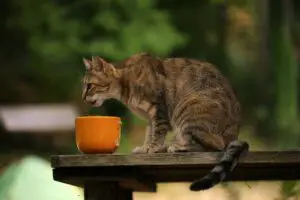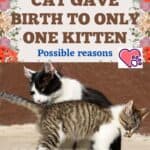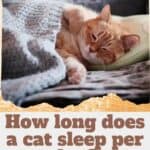
According to a new study, our cat prefers to eat a single meal only once a day, because it is more in line with nature.
Cats appear to be better able to control their appetite if they only eat one meal a day. During experiments, if a cat ate only once a day, a large meal was more satisfied than a cat who ate smaller snacks several times a day. Does this mean that we should feed our cat a single meal in the morning that contains her entire ration of food?
How often should the cat be fed
If we only feed the cat once, at breakfast time, we could prevent it from asking for food all day, or waiting for a bite for hours in the kitchen.
Additionally, wild cats endure what is termed “intermittent fasting,” eating only once a day before finding a new meal.
But it’s not just about avoiding annoying behaviors, feeding your cat only once a day can help reduce the risk of feline obesity.
Obesity in fact shortens the life expectancy of our cat and makes it more prone to get sick. Today this disease is the most common nutritional problem of domestic cats.
According to experts, at least so far, it would be ideal to feed our cat with two meals a day, about 12 hours apart: once for breakfast and once for dinner.
But it’s not exactly a fixed rule, because the frequency with which a cat is fed also depends on its age: a younger cat needs more energy to burn.
Kittens need to eat three times a day, at least up to six months of age. From six months on, however, we can switch to twice a day.
Why feed the cat only once?
But a single meal a day may be enough for most cats, according to this new study.
While it might surprise both experts and cat owners, whose pets ask for food several times a day, it does seem like a better approach.
Feeding with multiple meals is based on the idea that cats in the wild eat several times a day, feeding on small prey.
But this doesn’t apply to some big cats. Lions, for example, eat larger prey and perhaps not as often, or at least not with multiple meals a day.
Cats, however, are very habitual animals, and once they reach adulthood they love to have a normal routine even in terms of nutrition.
Often, cat owners know when it’s time for food because their cat begins to make particular noises and draw attention, perhaps moving a lot where it knows its food is.
The study we are talking about involved four male and four female cats, all domestic and healthy, of ideal weight, aged between one and four years.
The cats lived together in a free but indoors environment in the university, with access to various sources of entertainment (boxes, perches, beds, scratching posts, toys, etc.).
They also received their human friends, for two hours a day, five days a week, to get the right amount of interaction with people they knew.
After a series of tests with single or multiple meals a day, cats who ate four times a day were found to have increased physical activity.
But although physical activity was different, overall energy expenditure was similar among cats who had different feeding plans.
A cat who ate only once a day had higher appetite hormone levels, so they were more satisfied than a cat who ate multiple meals.
Other physical factors were also better: lower fasted breathing, hence a greater consumption of fat stores, more amino acids in the blood, therefore more protein.
This factor in particular is interesting because in older cats, muscle mass is reduced (a condition called sarcopenia), and increased protein production can help.
Is this diet good for all cats?

However, this type of diet may not be suitable for all cats. Each animal, in fact, has a different and unique lifestyle (like its owner).
For example, a cat who has to take medication twice a day will still have to get two meals.
In addition, cats between the ages of six months and one year, according to experts, need to be fed twice a day. After you can move on to only once, but always with caution.
However, some cats, despite everything, may need two meals a day, and only the owner who knows his cat can understand it based on his needs.






